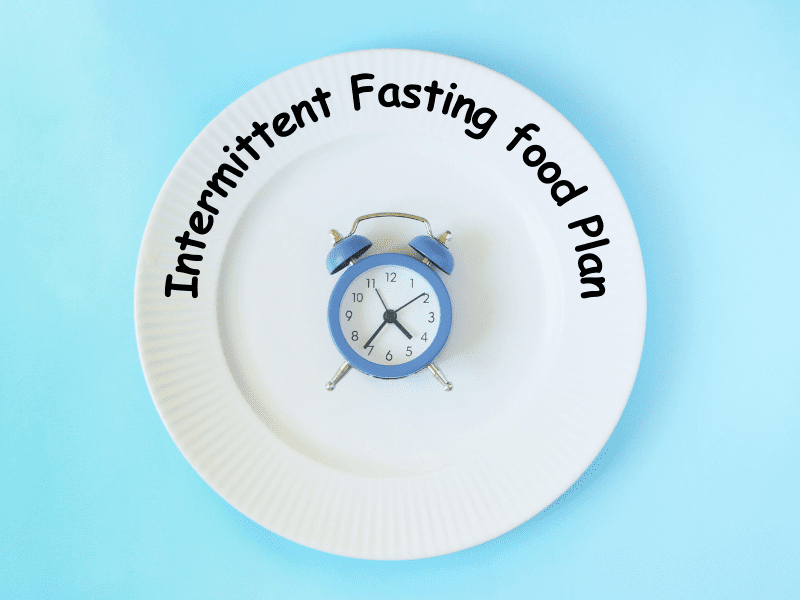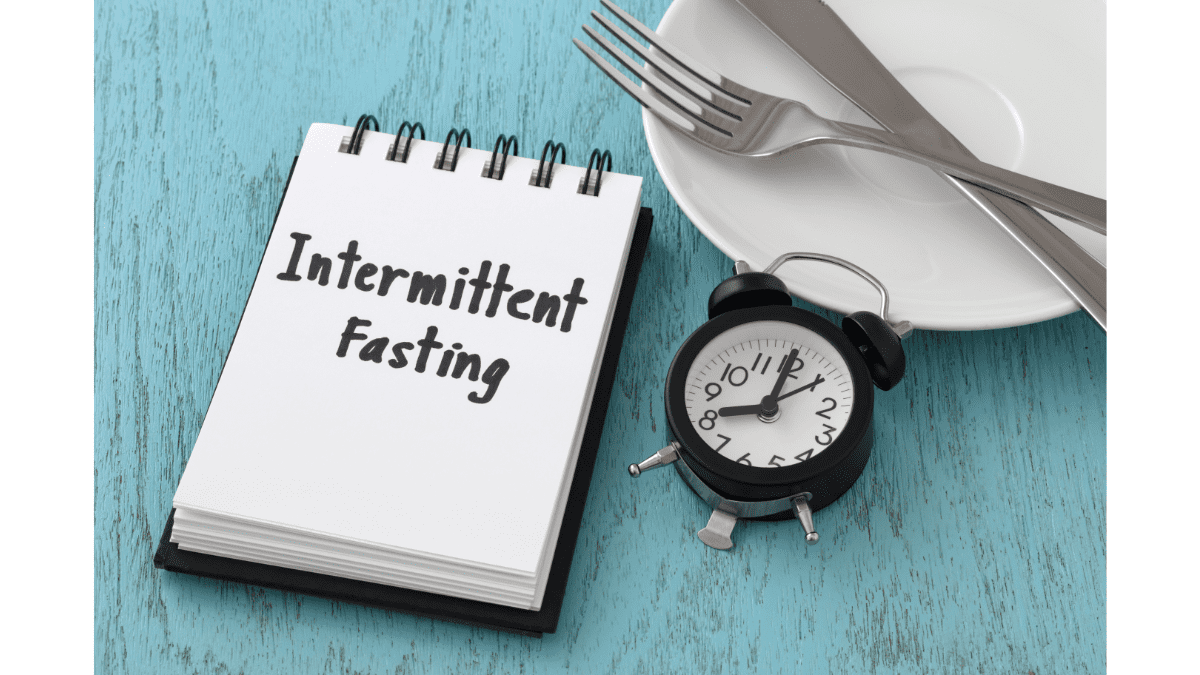Understanding Intermittent Fasting and How It Works
Intermittent fasting has gained significant attention in recent years as a popular dietary approach for weight loss and overall health improvement. But what exactly is intermittent fasting, and how does it work?
In simple terms, intermittent fasting food plan refers to an eating pattern that cycles between periods of fasting and eating. Unlike traditional diets that focus on what you eat, intermittent fasting primarily focuses on when you eat. By restricting the time window in which you consume food, this approach aims to optimize your body’s metabolic processes.
There are several methods of intermittent fasting, each with its own unique approach. The most common ones include the 16/8 method, where you fast for 16 hours and limit your eating window to 8 hours; the 5:2 method, where you eat normally for five days of the week and restrict calorie intake on two non-consecutive days; and alternate-day fasting, where you alternate between regular eating days and very low-calorie or no-calorie fasting days.

The underlying principle behind how intermittent fasting works lies in its impact on insulin levels and cellular repair processes. When you fast, your insulin levels decrease significantly, allowing stored body fat to be more accessible as an energy source. Additionally, during the fasting period, your cells undergo a process called autophagy – a natural mechanism that helps remove damaged cells and promote cellular rejuvenation.
By incorporating intermittent fasting into your lifestyle correctly under proper guidance from healthcare professionals or nutritionists, it can potentially lead to weight loss, improved insulin sensitivity, reduced inflammation levels, enhanced brain function, increased longevity markers like improved cardiovascular health.
In this section of our guide on intermittent fasting, we will delve deeper into each method of intermittent fasting while exploring their potential benefits and considerations. So let’s embark on this journey together to gain a better understanding of how intermittent fasting works and how it can positively impact our overall well-being. Intermittent fasting is a popular eating pattern that involves cycling between periods of fasting and eating.
There are several different methods of intermittent fasting, each with its own unique approach.
- Time-restricted feeding: This method involves limiting your daily eating window to a specific number of hours, typically between 8 to 10 hours. The remaining hours are designated for fasting.
- Alternate day fasting: With this approach, you alternate between days of normal eating and days where you consume only a limited number of calories or no calories at all.
- The 5:2 diet: This method involves restricting calorie intake to around 500-600 calories on two non-consecutive days per week, while maintaining normal eating on the other five days.
Now let’s explore some potential benefits of intermittent fasting:
- Weight loss: Intermittent fasting can help create a calorie deficit by reducing overall caloric intake, which may lead to weight loss over time.
- Improved insulin sensitivity: Intermittent fasting has been shown to improve insulin sensitivity, which can help regulate blood sugar levels and reduce the risk of developing type 2 diabetes.
- Enhanced brain health: Some studies suggest that intermittent fasting may have neuroprotective effects and potentially contribute to improved cognitive function and brain health.
- Increased autophagy: Fasting triggers a process called autophagy, where damaged cells are cleared out and recycled within the body.
This could have positive effects on cellular health and longevity. Despite these potential benefits, it’s important to consider some factors before starting intermittent fasting:
- Individual needs: Intermittent fasting may not be suitable for everyone, especially those with certain medical conditions or dietary requirements. It’s essential to consult with a healthcare professional before adopting any new dietary approach.
- Nutritional adequacy: During your eating periods in intermittent fasting, it’s crucial to focus on consuming nutrient-dense foods to ensure you’re meeting your nutritional needs.
- Sustainability: Intermittent fasting may not be sustainable for everyone in the long term. It’s important to find an approach that fits with your lifestyle and preferences to achieve lasting results.
In conclusion, intermittent fasting is a flexible eating pattern that has gained popularity due to its potential benefits for weight management, insulin sensitivity, brain health, and cellular rejuvenation. However, it’s essential to consider individual factors and seek professional advice before incorporating intermittent fasting into your lifestyle.
Table of Contents
The Benefits of Intermittent Fasting for Your Health and Well-being
Intermittent fasting has gained significant attention in recent years due to its potential health benefits. This eating pattern involves alternating periods of fasting and eating, with various approaches such as the 16/8 method or the 5:2 diet.
One of the key benefits of intermittent fasting is improved insulin sensitivity. By giving your body regular breaks from food intake, it can help regulate blood sugar levels and reduce insulin resistance. This can be particularly beneficial for individuals with prediabetes or type 2 diabetes.
Another advantage is weight management. Intermittent fasting can assist in calorie restriction, which may lead to weight loss over time. Additionally, it has been suggested that intermittent fasting helps preserve muscle mass while reducing body fat.
Increased energy levels are also commonly reported among those who practice intermittent fasting. During periods of fasting, the body taps into stored fat for energy, resulting in a steady supply of fuel throughout the day. This can lead to improved mental clarity and sustained energy levels.
It’s important to note that intermittent fasting may not be suitable for everyone, especially those with certain medical conditions or specific dietary needs. It’s always recommended to consult with a healthcare professional before making any significant changes to your eating habits.
Intermittent fasting offers several potential benefits including improved insulin sensitivity, weight management, and increased energy levels. However, it is essential to approach this eating pattern with caution and seek guidance from a healthcare professional if needed.
Intermittent Fasting as a Powerful Tool for Weight Loss
Intermittent fasting has gained significant attention as a powerful tool for weight loss. It involves cycling between periods of eating and fasting, with the aim of reducing calorie intake and promoting fat burning.
One of the main benefits of intermittent fasting for weight loss is its ability to create a calorie deficit. By restricting the eating window, individuals naturally consume fewer calories, which can lead to a reduction in overall body weight.
During the fasting period, the body taps into its stored energy reserves, primarily fat stores, to fuel its functions. This process promotes fat burning and can contribute to weight loss over time.
Additionally, intermittent fasting may offer metabolic benefits that go beyond simply reducing calorie intake. Some studies suggest that it can improve insulin sensitivity and enhance hormonal balance, both of which play crucial roles in maintaining a healthy weight.
It is important to note that intermittent fasting should be approached with caution and tailored to individual needs and preferences. Consulting with a healthcare professional or registered dietitian is recommended before embarking on any new dietary regimen.
Intermittent fasting can be an effective tool for weight loss by reducing calorie intake and promoting fat burning during periods of fasting. However, it is essential to adopt a personalized approach and seek professional guidance when incorporating this practice into your lifestyle.
The Role of Effective Intermittent Fasting food Plan
In an effective intermittent fasting plan, the role of food is crucial. While fasting, it is important to choose nutrient-rich foods that provide essential vitamins, minerals, and energy to support your body’s needs.
During the fasting period, it is recommended to consume calorie-free beverages such as water, black coffee, or herbal tea. These beverages help keep you hydrated and can also help curb hunger pangs.
When it comes to breaking your fast, opt for nutrient-dense foods that provide sustained energy throughout the day. Focus on incorporating lean proteins such as chicken, fish, or tofu into your meals. These protein sources help promote satiety and support muscle growth and repair.

Including plenty of vegetables in your intermittent fasting food plan is also important. Vegetables are low in calories but rich in fiber and essential nutrients. They can help you feel full while providing vital vitamins and minerals.
Healthy fats like avocado, nuts, seeds, and olive oil are another important component of an effective intermittent fasting plan. These fats provide a sense of satisfaction and can help regulate blood sugar levels during the eating window.
Lastly, whole grains such as quinoa or brown rice can be included in moderation to provide complex carbohydrates for sustained energy release.
Remember that everyone’s nutritional needs may vary based on individual goals and health conditions. It is always advisable to consult with a healthcare professional or registered dietitian before starting any new dietary plan or making significant changes to your eating habits during intermittent fasting.
Tips and Strategies to Maximize the Health Benefits of Intermittent Fasting
When it comes to intermittent fasting, maximizing the health benefits requires careful planning and implementation. By following a few key tips and strategies, you can make the most out of your fasting journey.
One crucial aspect of intermittent fasting is scheduling your eating windows. This involves determining specific times of the day when you will consume your meals. It’s important to find a schedule that works best for you and aligns with your lifestyle. Whether it’s a 16:8 or 18:6 fasting protocol, sticking to a consistent eating window can help regulate your metabolism and optimize fat burning.
Staying hydrated during fasts is another essential factor in maximizing the health benefits of intermittent fasting. Although you may not be consuming food, it’s crucial to drink enough water throughout the day to maintain proper hydration levels. Additionally, incorporating herbal teas or electrolyte-rich beverages can provide additional hydration support during fasting periods.
Incorporating physical activity into your routine while practicing intermittent fasting can further enhance its health benefits. Engaging in regular exercise not only aids in weight loss but also promotes overall well-being. Whether it’s strength training, cardio exercises, or low-impact activities like yoga or walking, finding an exercise regimen that suits your preferences can complement the effects of intermittent fasting.
By implementing these tips and strategies – scheduling your eating windows, staying hydrated during fasts, and incorporating physical activity into your routine – you can maximize the health benefits derived from intermittent fasting while maintaining a balanced lifestyle. Remember to consult with a healthcare professional before starting any new diet or exercise regimen to ensure it aligns with your individual needs and goals
Intermittent Fasting and Muscle Gain: How They Can Go Hand-in-Hand?
Intermittent fasting has gained popularity not only for its potential weight loss benefits but also for its positive effects on muscle gain. Contrary to the belief that fasting may hinder muscle growth, it can actually go hand-in-hand with building muscle when combined with proper resistance training.
During intermittent fasting, the body experiences a surge in growth hormone production. This hormone plays a crucial role in stimulating muscle growth and repair. Studies have shown that fasting can lead to increased levels of growth hormone, which in turn promotes protein synthesis and helps build lean muscle mass.
When intermittent fasting is combined with resistance training, the benefits are further enhanced. Resistance training stimulates muscle fibers and creates micro-tears in the muscles. During the fasting period, the body utilizes stored fat as an energy source, while preserving muscle tissue. This allows for greater fat loss while maintaining or even increasing muscle mass.
It is important to note that proper nutrition and timing of meals play a vital role in maximizing the benefits of intermittent fasting for muscle gain. Consuming adequate protein during eating periods is essential for providing the necessary building blocks for muscle repair and growth.
Intermittent fasting can be a valuable tool for individuals looking to optimize their muscle gain efforts. By promoting growth hormone production and combining it with resistance training, individuals can experience improved body composition and enhanced muscular development. However, it is crucial to consult with a healthcare professional or registered dietitian before embarking on any dietary or exercise regimen to ensure it aligns with individual needs and goals.
Frequently Asked Questions about Intermittent Fasting Answered
Intermittent fasting has gained popularity in recent years as a way to improve health and promote weight loss. However, it is common for individuals to have questions and concerns about this eating pattern. In this section, we will address some of the most frequently asked questions about intermittent fasting.
- Is intermittent fasting safe?
Intermittent fasting is generally considered safe for healthy individuals. However, it is important to consult with a healthcare professional before starting any new dietary regimen, especially if you have underlying medical conditions or are taking medications.
- Can I drink coffee or tea during a fast?
Yes, you can consume non-caloric beverages such as black coffee or unsweetened tea during your fasting periods. These beverages do not significantly impact insulin levels and are therefore allowed during intermittent fasting.
- What is the best time window for intermittent fasting?
The best time window for intermittent fasting depends on individual preferences and lifestyle factors. The most common approach is the 16:8 method, where you fast for 16 hours and restrict your eating to an 8-hour window each day. However, there are other variations such as the 5:2 method and alternate-day fasting that may work better for some individuals.
- Can I still build muscle while fasting?
Yes, it is possible to build muscle while practicing intermittent fasting. To support muscle growth, it is important to consume adequate protein during your eating periods and engage in regular resistance training exercises.
Remember that everyone’s body responds differently to different dietary approaches, so finding what works best for you may require some experimentation and adjustments along the way.
Embracing the Benefits of Intermittent Fasting for a Healthier Lifestyle
In conclusion, embracing the benefits of intermittent fasting can greatly contribute to a healthier lifestyle and overall well-being. By incorporating intermittent fasting into your routine, you can experience various positive effects on both your physical and mental health.
Intermittent fasting has been shown to promote weight loss, improve insulin sensitivity, and reduce inflammation in the body. It can also help regulate blood sugar levels, lower cholesterol levels, and improve heart health. Additionally, intermittent fasting has been linked to increased brain function and improved cognitive abilities.
To incorporate intermittent fasting into your routine, it is important to start gradually and find a schedule that works best for you. There are different methods of intermittent fasting such as the 16/8 method (fasting for 16 hours and eating within an 8-hour window) or the 5:2 method (eating normally for five days and restricting calorie intake on two non-consecutive days).
It is crucial to listen to your body during this process and ensure that you are still meeting your nutritional needs when breaking your fast. Consulting with a healthcare professional or registered dietitian can provide personalized guidance in adopting this lifestyle change.
By embracing the benefits of intermittent fasting, you can take control of your health and well-being while enjoying the flexibility it offers in terms of meal timing. Remember that consistency is key when incorporating any new dietary practice into your routine, so be patient with yourself as you adapt to this new way of eating.
Also Read: 20 INSIGHTS TO MASTER THE INTERMITTENT FASTING DIET PLAN FOR HOLISTIC WELLNESS


2 thoughts on “Intermittent Fasting Food Plan to Boost Your Health”